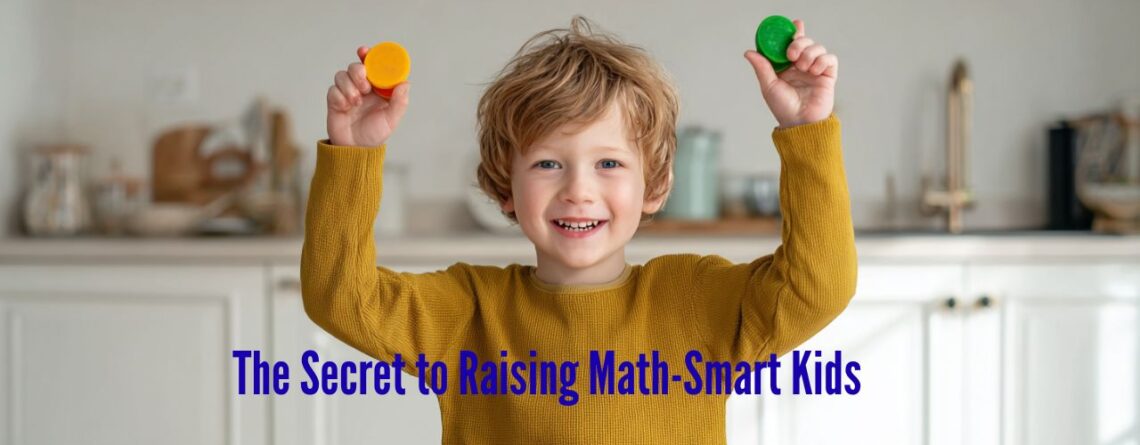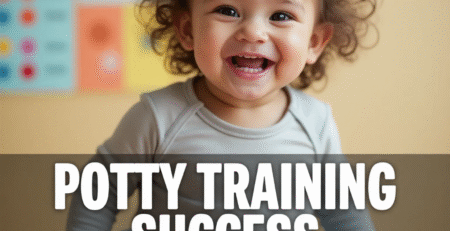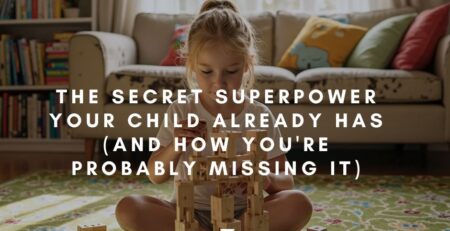The Secret to Raising Math-Smart Kids (Without Flash Cards or Apps)
You’re Already Teaching Math—You Just Don’t Know It Yet
Did you know that your child encounters over 100 mathematical concepts before breakfast? While you’re panicking about whether your 4-year-old should already be memorizing multiplication tables, here’s the shocking truth: children who learn math through everyday play score 23% higher on standardized tests than those who rely solely on structured lessons.
But here’s what’s even more surprising—you don’t need a single educational app, expensive math program, or mountain of flashcards to give your child a mathematical edge. The secret weapon has been hiding in plain sight all along.
Why Your Kitchen Beats Any Classroom
Think Blocks, Not Videos
You’ve probably downloaded every educational app promising to turn your toddler into a math genius. Stop right there.
Here’s what the research won’t tell you: those colorful videos and interactive games can’t replace what happens when your child’s hands touch real objects. When your 3-year-old lines up their toy cars, counts their crackers, or stacks blocks until they topple over, their brain is building mathematical foundations that no screen can replicate.
Because manipulation beats visualization every single time.
Your child’s fingers are their first calculators. They need to feel numbers, not just see them. Want proof? Watch your toddler naturally sort their toys by size without anyone teaching them. That’s mathematical thinking in action.
If you want to invest in physical learning tools, consider educational manipulatives like Spielgaben‘s thoughtfully designed blocks and shapes. These types of materials bridge the gap between free play and structured learning, giving your child endless opportunities to discover mathematical concepts through hands-on exploration.
Discover Numbers Hiding Everywhere in Your Home
Remember playing hide-and-seek as a kid? Numbers are playing the same game in your house right now.
You’re already teaching math when you:
- Deal the same number of cards to each player
- Count party favors for guests
- Put one napkin out for each family member
- Add more scoops when an extra friend joins for ice cream
Every single day, you’re using one-to-one correspondence, comparing sets, and demonstrating addition and subtraction. Your child is watching, absorbing, and learning—even if they seem more interested in making a mess.
Turn Shopping Into a Math Adventure
Once your child graduates from the “grab everything within reach” phase, grocery shopping becomes your secret mathematical playground.
Ask these game-changing questions:
- “Which box is bigger?”
- “What costs more—these apples or those oranges?”
- “How many cans do we need for everyone in our family?”
When your 5-year-old buys something with their own money and receives change, they’re experiencing addition and subtraction in the most meaningful way possible. Because real-world math sticks better than worksheet math.
The Play-Learning Connection That Changes Everything
Why Your Child Learns Better Playing War Than Doing Worksheets
Here’s something that’ll blow your mind: elementary school children who struggle with fractions can instantly calculate their favorite baseball player’s batting average to three decimal places.
Brazilian street children who fail school math tests become calculation wizards when handling real money transactions. What’s the difference? Context and meaning.
When your child plays the card game War, they’re comparing numbers, understanding greater than and less than, and having fun while doing it. That’s math at its absolute best.
Money: The Ultimate Math Teacher
Three pennies or one nickel—which is worth more?
This simple question opens up a world of mathematical thinking. When you put out coins and ask your child to match your set, you’re teaching counting, patterns, and equivalence.
Here’s how to make money meaningful:
- Let them earn dollars at a lemonade stand
- Show them what their money can actually buy
- Practice making change together
- Compare values of different combinations
Learning in Context: Where Real Understanding Happens
Why the Supermarket Beats Computer Games
Your 3-year-old will learn more about big and small while hunting for the perfect apple in the produce section than they’ll ever learn from the fanciest educational software.
Because meaningful experiences create lasting learning.
At around 3 or 4, when your child starts loving board games like Candy Land, they’re not just having fun. Rolling dice, moving pieces, and counting spaces teaches one-to-one correspondence where the outcome actually matters to them.
The Muffin Pan Revelation
One of our most powerful lessons came from 4-year-old Woody during a simple baking session. While arranging muffin batter, he discovered something incredible: “Mom, did you realize that two rows of three muffins is exactly the same as three rows of two muffins?”
In that moment, he’d discovered the foundation of multiplication—not through memorization, but through experience.
Your Natural Teaching Moments Are Already Perfect
Stop Worrying About Getting an “Edge”
You don’t need to buy anything extra. You don’t need to compete with other parents. You just need to recognize the teachable moments that already exist in your everyday routine.
Mathematical skills blossom naturally when you:
- Follow your child’s curiosity
- Play games they genuinely love
- Use real objects instead of abstract concepts
- Make learning meaningful to their world
The Power of Doing What Comes Naturally
If you just do what comes naturally in your day, you’ll build number skills effortlessly.
Set the table together. Sort laundry by color and size. Count stairs as you climb them. Divide snacks equally among siblings. These aren’t math lessons—they’re life moments that happen to be mathematical.
Your Child’s Mathematical Journey Starts Today
Here’s your truth: you don’t need to become a math teacher to raise a math-smart child.
You just need to notice what you’re already doing and embrace those natural learning opportunities. Start with two or three simple strategies:
- Replace one screen-time session with hands-on object play
- Ask mathematical questions during your next grocery trip
- Play one board game or card game this week
Your confidence in these small moments will build your child’s mathematical foundation brick by brick.
Remember this: Learn through play, grow through discovery, succeed through joy.
The mathematical genius in your child is already there—you just need to let it shine through the magic of everyday moments.
What mathematical adventure will you discover with your child today?













LEAVE A COMMENT